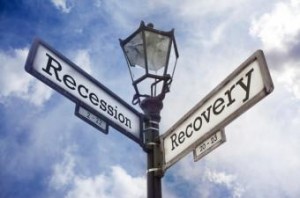
As housing takes a turn for recovery, the makeup of that recovery may differentiate itself from past cases.
As the housing market progressively recovers in 2012, more and more analysts are noting the shift in consumer demand from single-family to multifamily units.
The latest (and most detailed) example is “The Shifting Nature of U.S. Housing Demand,” a wide-ranging report from the Demand Institute that, as the title indicates, measures how demand has responded to the unique market conditions of the new housing recovery.
“Based on our team’s analysis, the worst of the housing crash is over and a recovery has now started,” the institute, which is operated by Nielsen, stated in the report. “Yet this recovery will be very different from previous ones.”
As the report goes on to argue, the new housing recovery will not be led by homeowners, as has typically been the case, but by buyers for rental properties. More than 50 percent of those planning to move in the next two years have stated they intend to rent, according to the report, and nowhere will that inclination be greater than for young people and immigrants, the two groups most affected by the economic downturn.
Jose Hernandez, a broker associate with Coldwell Banker Gold Coast, said the features of the downturn have been a big factor in the demand for multifamily units in his market.
“Foreclosures have displaced many families in the last few years,” he said. “These families obviously need housing, and most of them will not be able to buy anytime soon.”
Because of that, Hernandez continued, the conditions have been right for those consumers to pursue multifamily living conditions.
“Affordability, interest rates, and demand for rental units have also been a big part of the equation, giving investors an ROI that makes sense to invest now,” Hernandez said. “I’ve always considered multifamily the safest investment in real estate; people will always need housing.”
The report also got in to some of the more economic details surrounding the multifamily recovery. For one, the recovery will not be consistent across the U.S. Along with the typical factors, such as the disparate inventory and the unemployment rates of all 50 states, the report also highlighted the local amenities, such as access to public transportation, that will impact the growth of multifamily units.
And that growth, in turn, will inspire new consumer spending patterns, with home remodeling, financial services, media, and retail all experiencing shifts in business relative to multifamily resident-demand. For instance, the report mentions automobiles, and how renters, who typically own fewer cars, may inspire greater demand for rental cars. Or the banking sector, facing more consumers that rent rather than own, may design financial products more in tune with that market.
Even though renting may define the new housing recovery, the report did state that the desire for homeownership remains strong (as Fannie Mae also found in a recent study), and that the homeownership rate will not wane during the recovery.